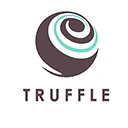Smart contracts are immutable once deployed, making security a paramount concern. This guide outlines best practices for securing your smart contracts while using the Truffle framework.
1. Use the Latest Version of Solidity
Always use the latest stable version of Solidity to benefit from the latest security improvements and bug fixes. Specify the version in your contract:
pragma solidity ^0.8.16;2. Follow the Principle of Least Privilege
Limit the permissions of functions to only what is necessary. For example, use onlyOwner modifiers to restrict access:
import "@openzeppelin/contracts/access/Ownable.sol";
contract MyContract is Ownable {
uint256 private data;
function setData(uint256 _data) public onlyOwner {
data = _data;
}
function getData() public view returns (uint256) {
return data;
}
}3. Use SafeMath for Arithmetic Operations
To prevent overflow and underflow issues, use SafeMath from OpenZeppelin:
import "@openzeppelin/contracts/utils/math/SafeMath.sol";
contract MyContract {
using SafeMath for uint256;
uint256 private totalSupply;
function increaseSupply(uint256 value) public {
totalSupply = totalSupply.add(value);
}
}4. Validate Input Data
Always validate input data to prevent unexpected behavior:
function setData(uint256 _data) public {
require(_data > 0, "Data must be greater than zero");
data = _data;
}5. Implement Proper Error Handling
Use require, assert, and revert for error handling:
function withdraw(uint256 amount) public {
require(amount <= balance[msg.sender], "Insufficient balance");
balance[msg.sender] = balance[msg.sender].sub(amount);
payable(msg.sender).transfer(amount);
}6. Avoid Using Deprecated Functions
Regularly check for deprecated functions and update your contracts accordingly. For example, avoid using tx.origin for authorization checks.
7. Use a Security Audit
Before deploying your smart contract, consider having it audited by a reputable security firm. They can identify vulnerabilities that you may have missed.
8. Test Thoroughly
Make sure to write comprehensive tests for your smart contracts. Use Truffle's testing framework to ensure all functionalities work as expected:
const MyContract = artifacts.require("MyContract");
contract("MyContract", accounts => {
let instance;
before(async () => {
instance = await MyContract.deployed();
});
it("should set data only by owner", async () => {
await instance.setData(42, { from: accounts[0] });
const data = await instance.getData();
assert.equal(data.toString(), "42", "Data was not set correctly");
});
});9. Use Upgradable Contracts
Consider using a proxy pattern or libraries like OpenZeppelin's Upgrades to make your contracts upgradable. This allows you to fix issues or add features without losing the state of your contract.
10. Monitor and Maintain Your Contracts
After deployment, continuously monitor your contracts for unusual activity. Use tools like Etherscan to track transactions and consider implementing a mechanism to pause contract functions in case of an emergency.
Conclusion
By following these best practices, you can significantly enhance the security of your smart contracts in Truffle. Remember that security is an ongoing process, and staying informed about the latest vulnerabilities and mitigation strategies is crucial for maintaining the integrity of your decentralized applications.

